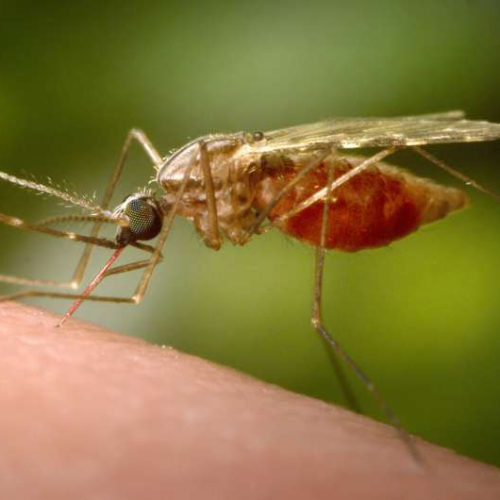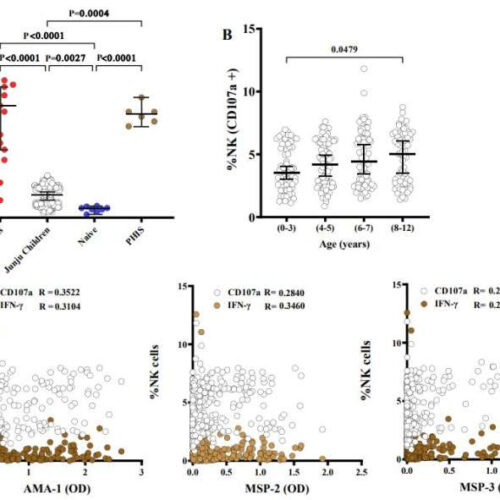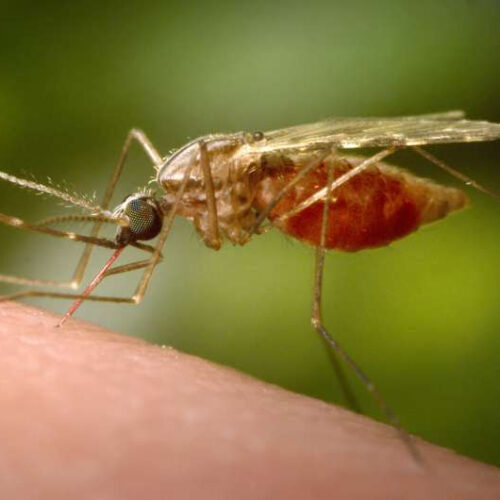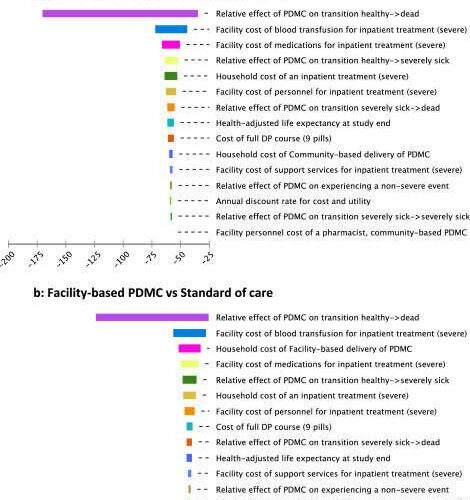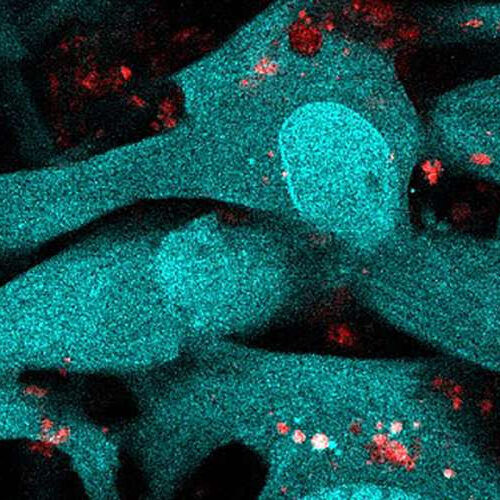by University of Oxford Credit: CDC The results of a clinical trial into a new malaria vaccine candidate (RH5.1/Matrix-MTM) show it is well-tolerated and offers effective protection against the blood-stage of the disease—the first inoculation to do so. Malaria, caused by Plasmodium falciparum parasites, is a leading cause of death in children under five in many parts of...
Tag: <span>malaria</span>
New malaria vaccine shows high protection in clinical trial
by Justin Jackson , Medical Xpress Credit: Pixabay/CC0 Public Domain Researchers at Leiden University Medical Center and Radboud University Medical Center in the Netherlands have demonstrated promising safety and efficacy of a late-liver-stage attenuated malaria parasite vaccine in a small clinical trial. The study found that immunization with a genetically modified Plasmodium falciparum parasite, known...
EEE, West Nile, malaria: Know the difference between these mosquito-borne diseases
August 27, 2024 by The Associated Press In this Aug. 26, 2019 file photo, a municipal biologist examines a mosquito in Salt Lake City. Credit: AP Photo/Rick Bowmer, file The world’s deadliest animal can be squashed flat with a quick slap: It’s the mosquito. The buzzing insects are more than annoying—they spread disease. When they...
Study finds tafenoquine is a cost-effective treatment option for malaria
by Menzies School of Health Research Map of incremental cost-effectiveness ratios (ICERs) in each malaria-endemic municipality for Scenario 1 (tafenoquine for adults, primaquine adherence 66.7%), Scenario 2 (tafenoquine for all, primaquine adherence 66.7%), Scenario 3 (tafenoquine for adults, high primaquine adherence of 90%), and Scenario 4 (tafenoquine for adults, low primaquine adherence of 30%), compared to...
Locally Acquired Malaria Cases Identified in the United States
Distributed via the CDC Health Alert NetworkJune 26, 2023, 5:00 PM ET CDCHAN-00494 SummaryThe Centers for Disease Control and Prevention (CDC) is issuing this Health Alert Network (HAN) Health Advisory to share information and notify clinicians, public health authorities, and the public about— Identification of locally acquired malaria cases (P. vivax) in two U.S. states...
Killing is their job: Two studies analyze natural killer cells as they tackle the worst form of malaria
by Delthia Ricks, Medical Xpress Antibody-mediated NK cell activity in children: (A) Merozoite opsonizing antibodies from Junju adults (n=40) induced a significantly higher proportion of ab-NK cells degranulation compared to Junju children (n=293). Hyperimmune (PHIS) and malaria naive plasma were included as positive and negative controls, respectively. Error bars represent a 95% confidence interval of...
Antibody treatment tested as new tool against malaria
by Carla K. Johnson This 2014 photo made available by the U.S. Centers for Disease Control and Prevention shows a feeding female Anopheles funestus mosquito. The species is a known vector for malaria. The parasitic disease killed more than 620,000 people in 2020 and caused 241 million cases, mainly in children under 5 in Africa....
Malaria treatment is saving money while saving young lives
by University of Bergen a-c: Deterministic sensitivity analysis for Malawi; tornado diagram of community-delivered PDMC and facility-delivered PDMC versus standard of care (1a, 1b), and a comparison of both PDMC strategies (1c). Credit: eClinicalMedicine (2022). DOI: 10.1016/j.eclinm.2022.101669 Young children in sub-Saharan Africa often become severely anemic as consequence of a malaria infection. Treating them requires blood transfusions and...
The brain can detect infection with malaria
by Instituto Gulbenkian de Ciência (IGC) Brain vascular endothelial cells (blue) internalize particles released by erythrocytes infected with the malaria parasite (pink and red). Credit: Teresa Pais, 2022 A team of researchers from the Instituto Gulbenkian de Ciência (IGC) revealed that cells of the brain can detect the presence of malaria parasites in the blood,...
Monoclonal antibody prevents malaria in U.S. adults
One injection of a candidate monoclonal antibody (mAb) known as L9LS was found to be safe and highly protective in U.S. adults exposed to the malaria parasite, according to results from a National Institutes of Health Phase 1 clinical trial published in The New England Journal of Medicine. Additional clinical trials evaluating if L9LS can prevent malaria over six to 12...

